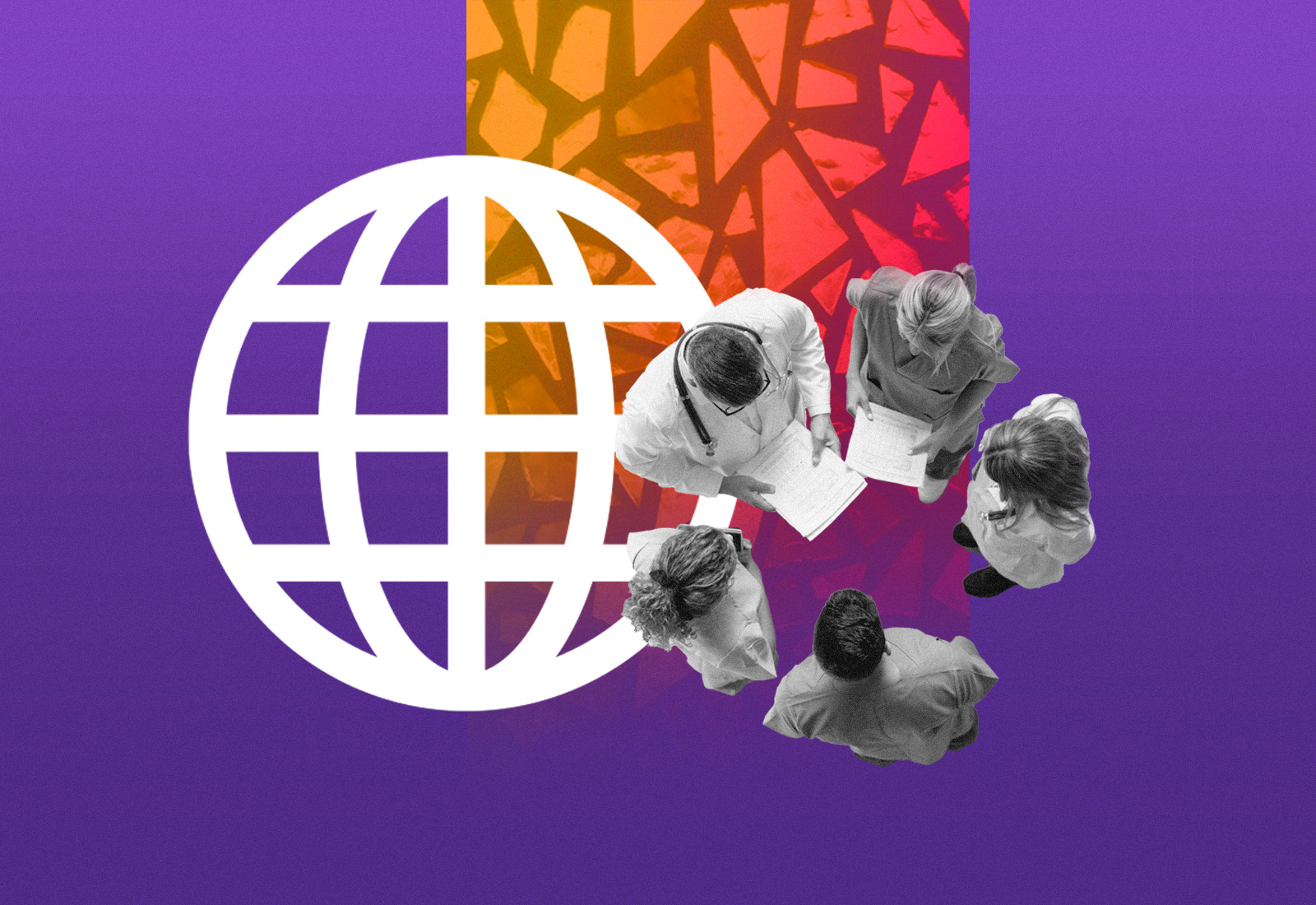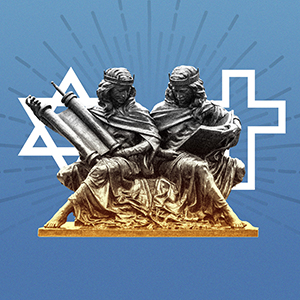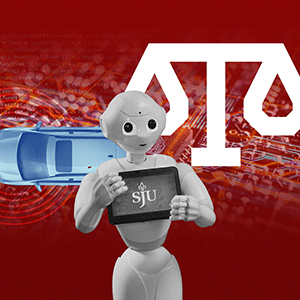Faith-Justice Institute
Contextualizing Healthcare on a Global Scale

According to the World Health Organization, nearly half — half — of the world’s population lacks access to healthcare. That’s an astounding 4 billion people. Saint Joseph’s course on Just Healthcare in Developing Nations investigates healthcare as a fundamental human right, culminating in an immersive service-learning trip to Costa Rica. It’s one of 25 service-learning courses offered by the University’s Faith-Justice Institute (FJI).
“We encourage service-learning students to listen to and learn from the people they meet, to critically analyze root causes of injustice and to see the strengths in each community,” says FJI Director Jill Welsh, MSW, “all of which allows them to contribute to a more just society.”
Just Healthcare, offered in partnership with the Institute for Clinical Bioethics, invites students to reflect on universal healthcare from an ethical and public health perspective. At the end of the semester, students travel to San José, Costa Rica, where they spend time in medical clinics, foster care homes, refugee camps, hospitals, and water and sanitation plants, contrasting citizens’ and immigrants’ access to care.
“Students engaged with community partners and healthcare practitioners who administer services to immigrants and refugees in Costa Rica,” explains Danielle Critelli, BBA ’13, MS ’22, FJI associate director of community partnerships, who accompanied students to San José. “These experiences challenged students to critically analyze medical access and social determinants of health to recognize human rights through our Ignatian value of care for the whole person.”
This year, nearly 500 students enrolled in service-learning courses offered by the FJI, which include direct-service courses like Just Healthcare; inside-out courses like Race, Media and Citizenship, in which students learn from and alongside incarcerated individuals; and project-based courses like Data Wrangling, in which students have been working with Jesuit schools Fe y Alregría Bolivia and Foi et Joie Haiti to process survey data and create reports for the community partner.
“Service-learning gave me the experience to realize that I wanted a people-centered career in which the human dignity of everyone is upheld,” says Daniel De Lude, BSBA ’25, leadership, ethics and organizational sustainability major and faith-justice studies minor. “Teaching ESL at a Philadelphia charter school allowed me to discern that I wanted to teach in the future."
In addition to offering service-learning courses, the Institute also offers a faith-justice studies minor, which allows students of all majors to study inquiries of faith and social justice. The interdisciplinary minor encourages dialogue around inherent human dignity, analysis of existing social structures and norms, and faith-based traditions of social justice.
“Engaging in faith-justice courses and programming allows students the opportunity for context, experience, reflection and action while in college so that they can graduate ready to be engaged citizens working to build a more inclusive society,” says Welsh.
Engaging in Faith-Justice courses and programming allows students the opportunity for context, experience, reflection and action while in college so that they can graduate ready to be engaged citizens working to build a more inclusive society.”
Jill Welsh, MSW
Director, Faith-Justice Institute


